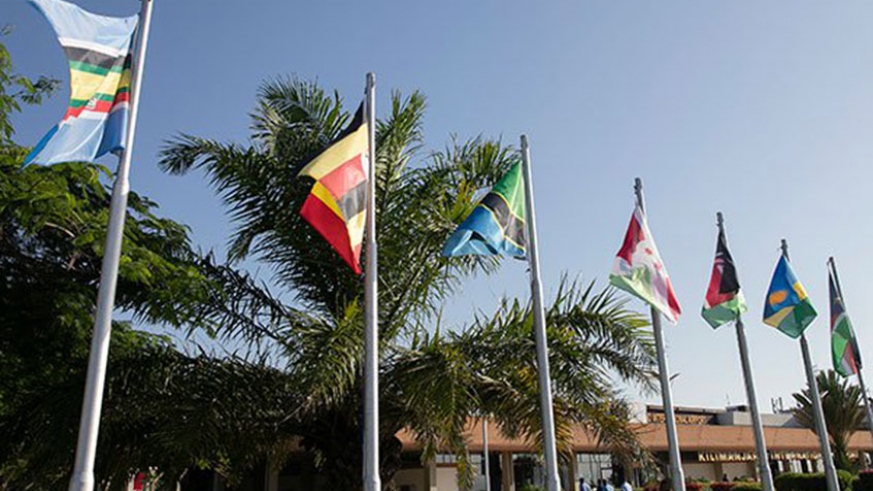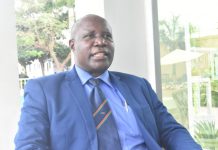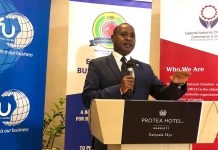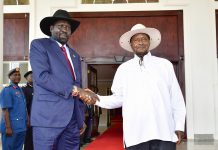BUREAU of the East African Community Speakers of National Legislators and the East African Legislative Assembly is pushing to have it established as an organ of the East African Community (EAC).
The Bureau seeks to be recognised as an eight organ of EAC, whose function will be, among other things, to advise the Summit of Heads of State.
The Bureau Secretariat resolved on a mode to go with their move through the East African Legislative Assembly (Eala).
Resolutions adopted after the 13th meeting of the Bureau that took place in Kampala, Uganda, are to the effect that technical officers and the Clerks of EAC Parliaments (Burundi, Kenya, Rwanda, South Sudan, Tanzania and Uganda) undertake a process of enacting a private members Bill to be considered by Eala.
In its further directions, the Secretariat of the Bureau said: “Eala should work closely with the respective Speakers when developing the Bill to incorporate their inputs.”
Organs of the EAC, as of now are the Summit, the Council of Ministers, the Coordinating Committee, the Sectoral Committees, the East African Court of Justice (EACJ), the Eala and the Secretariat.
The Speakers were meeting in Kampala under the host of Speaker of the Parliament of Uganda, Ms Rebecca Kadaga.
This is not the first time the EAC Speakers B ureau seeks to have status of EAC Organ, as about seven years ago it formally submitted a request to the Summit of EAC Heads of State to consider the Speakers’ B ureau as an organ.
However, the 11th Extra- Ordinary Summit of Heads of State considered it not appropriate for the Bureau to be transformed into an organ of the EAC, but rather encouraged the Speakers to enhance the relationship between the Eala and National Parliaments.
In their response, five EAC leaders refused the idea to create a new organ to advise them. They gave some reasons for their decision such as a conflict of roles with the Eala and the bloc’s Council of Ministers.
The Heads of State who refused to accredit the B ureau as an organ were Mr Jakaya Kikwete (Tanzania), Mr Yoweri Museveni (Uganda), Pierre Nkurunziza (Burundi), Uhuru Kenyatta of Kenya and R wanda, which was represented by its Prime Minister, Mr Pierre Habumurenyi.
For a while, Speakers have been pushing for the creation of an independent body so that it guides the Heads of State on policy and legislative issues.
The Council of Ministers was also opposed to the creation of the Speakers’ B ureau. The Treaty to Establish the EAC confers power on the Presidents to form an organ or institution.
The then EAC Council of Ministers’ Chairman Shem Bageine (Rwanda) said the Council observed that the proposed functions of the proposed organ undertaking consultative and advisory roles to the Summit of Heads of State on issues related to the community overlapped with the mandate of the Council provided under Article 14(3)(a) of the Treaty.
The Secretariat EAC Speakers’ B ureau also resolved on new heights in a framework to enhance a link between Eala and EAC National Assemblies/ Parliaments.
On that line, members decided as regards the formulation of B ills, respective committees of the partner states should be consulted to improve the input of partner states’ legislatures.
The resolutions further read that in formulating a sensitisation programme, the Eala Commission should study and consult the election calendar of each partner state.
Another issue raised and decided was on hosting of the East African Parliamentary Institute (EAPI).
EAPI was established in 2011 to provide a unique opportunity for parliamentarians and other stakeholders to sharpen their skills in parliamentary matters.
However, it seems there is no sufficient and sustainable funds from member states as of now.
The Bureau resolved that the Speaker of Eala reminds the partner states of their financial obligation towards EAPI, the Republic of Kenya makes a formal application through the Secretary General of the Community to the Council of Ministers to host EAPI with facilitation from the Speaker of Eala in consultation with the Ministry for EAC Affairs of Kenya.







